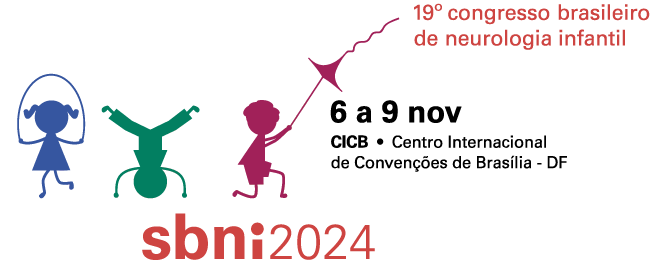Dados do Trabalho
Título
REFRACTORY EPILEPSY IN CHILDREN WITH BRIAN TUMORS
Introdução
Refractory epilepsy is the persistence of epileptic seizures after the use of at least two adequate anticonvulsant therapeutic regimens. This condition is especially challenging in children with brain tumors, since the presence of a tumor mass can exacerbate epileptogenesis and complicate clinical management.
Objetivo
To analyze the presence of refractory epilepsy in children with brain tumors.
Método
This is a literature review study, carried out through analyses of scientific studies on the topic of refractory epilepsy in children such as brain tumors. The studies were accessed through PubMed, Medline, Scopus, ScienceDirect and Capes Periodicals, selecting only those published between 2014 and 2024 and available in Portuguese. A total of 38 articles were found, of which 5 were selected.
Resultados
Brain tumors are the second most common neoplasm in childhood, causing several neurological manifestations, such as epileptic seizures. Common types include astrocytomas, ependymomas, and medulloblastomas. Tumors in or near the cerebral cortex have a higher risk of causing epilepsy. Epileptogenesis in children with brain tumors results from multiple mechanisms: the tumor can alter neuronal excitability, promote local inflammation, and disrupt neuronal networks, in addition to causing mechanical compression and invasion of brain tissue, facilitating seizures that are refractory to conventional treatment. The diagnosis of refractory epilepsy is complex and requires detailed evaluation. Anticonvulsants are the first treatment, but may not be effective. Surgical removal of the tumor may be curative, especially if the tumor is resectable and not in critical areas, but it has risks. When surgery is not feasible or does not eliminate seizures, adjuvant therapies such as the ketogenic diet, vagus nerve stimulation, and cannabidiol (CBD) are considered. Low-grade tumors in accessible locations tend to have a more favorable prognosis after surgical resection, while malignant tumors or tumors located in critical areas present greater challenges and a worse prognosis.
Conclusão
Refractory epilepsy in children with brain tumors represents a significant clinical challenge, requiring a multidisciplinary approach to optimize treatment and improve prognosis.
Referências
ABTIBOL, R. et al. Refractory epilepsy in children with brain tumors. The urgency of neurosurgery. Arquivos de Neuro-Psiquiatria, v. 74, n. 12, p. 1008–1013, 1 dez. 2016. DOI:
10.1590/0004-282X20160157
Disponível: https://pubmed.ncbi.nlm.nih.gov/27992000/
BEGHI, E. The Epidemiology of Epilepsy. Neuroepidemiology, v. 54, n. 2, p. 185–191, 2020. DOI: 10.1159/000503831
Disponível:https://pubmed.ncbi.nlm.nih.gov/31852003/
POLLACK, I. F.; AGNIHOTRI, S.; BRONISCER, A. Childhood brain tumors: current management, biological insights, and future directions. Journal of Neurosurgery: Pediatrics, v. 23, n. 3, p. 261–273, mar. 2019. DOI: 10.3171/2018.10.PEDS18377
Disponível:https://pubmed.ncbi.nlm.nih.gov/30835699/
ROSEMBERG, S. Long-term epilepsy associated-tumors (LEATs): what is new? Arquivos de Neuro-Psiquiatria, v. 81, p. 1146–1151, 15 jan. 2024. DOI: 10.1055/s-0043-1777730
Disponível: https://pubmed.ncbi.nlm.nih.gov/38157880/
WESSLING, C. et al. Brain tumors in children with refractory seizures—a long-term follow-up study after epilepsy surgery. Child’s Nervous System, v. 31, n. 9, p. 1471–1477, 23 jul. 2015. DOI: 10.1007/s00381-015-2825-0
Disponível: https://pubmed.ncbi.nlm.nih.gov/26201552/
Palavras Chave
refractory epilepsy; Brain tumors; epileptogenesis
Área
Epilepsias
Autores
CLÁUDIO JOSÉ ALVES DO NASCIMENTO, RODRIGO APARECIDO DOS SANTOS, MARIANE VEIGA DE QUEIROZ, HIALLE FERREIRA DE FREITAS HENRIQUE, MARIA EDUARDA DORNELES FERRAZ, CAMILA EDUARDA CÂMARA MAIA, KARLA EMANUELLY RIBEIRO DE LIMA
